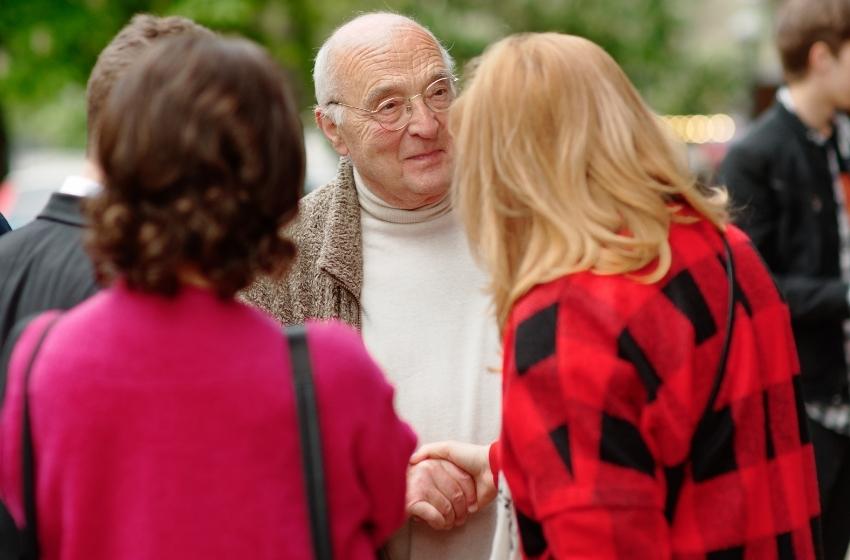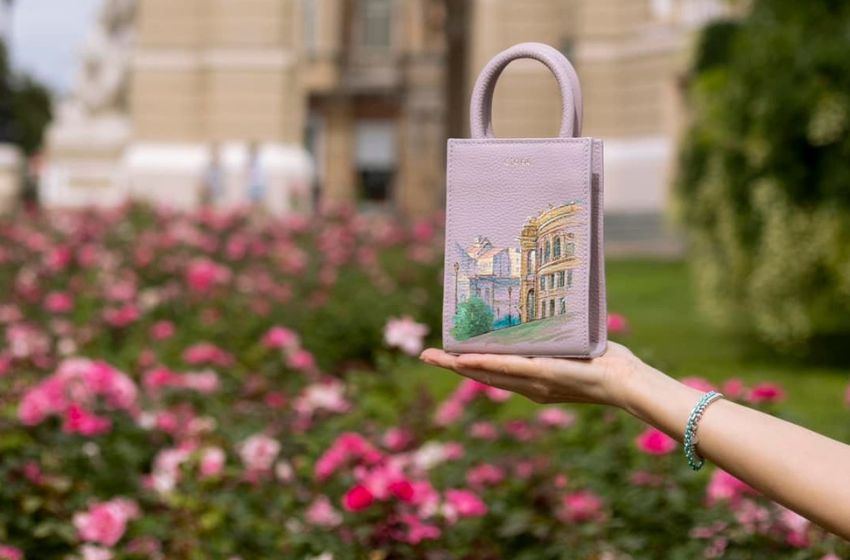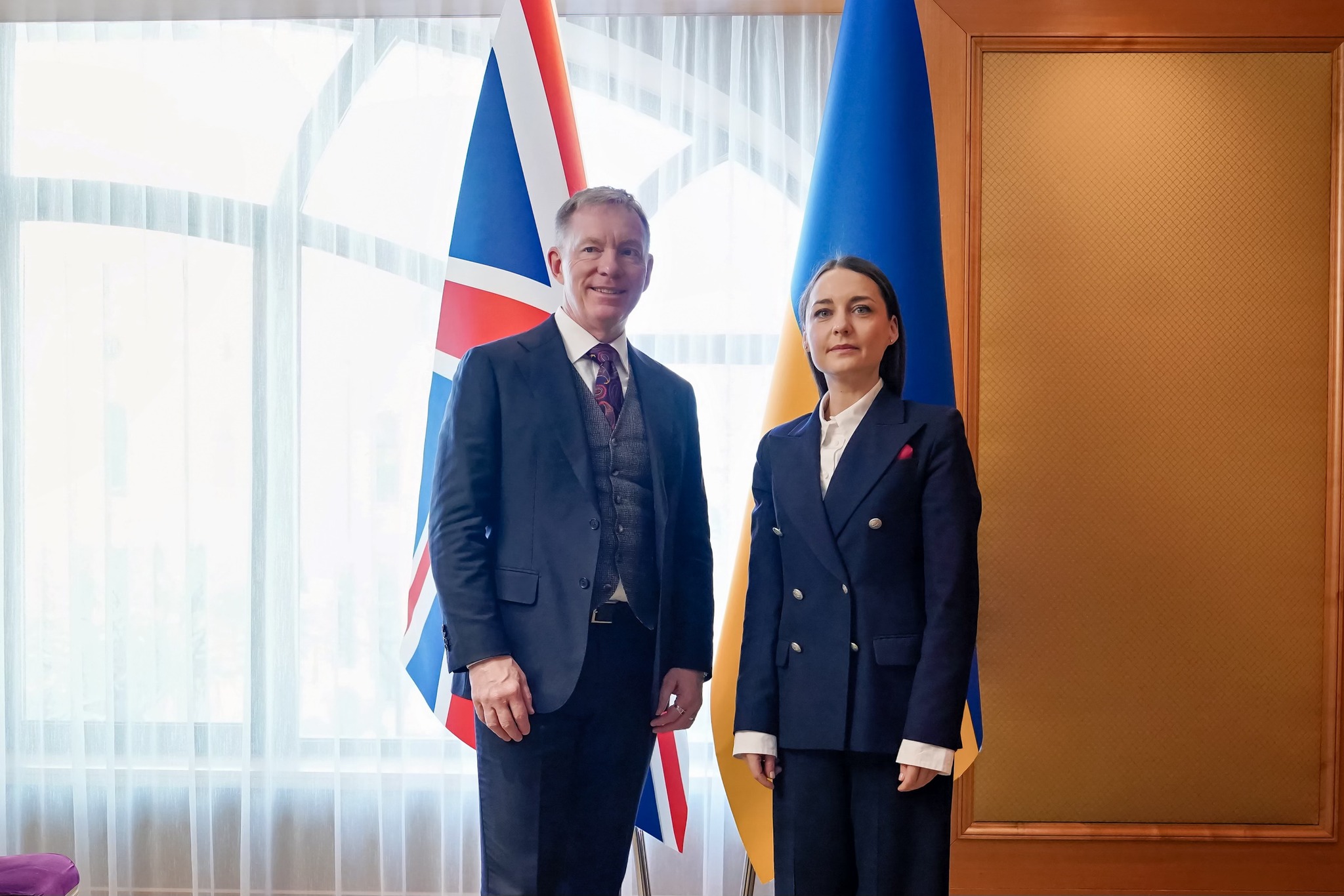We had a privilege to make an interview with the French violinist, writer and and filmmaker Bruno Monsaingeon during the Odesa International Violin Competition. Looking ahead, it was one of the most charming and inspiring interviews ever.
Bruno Monsaingeon, probably the most outstanding music filmmaker, who has documented life and work of the greatest artists of our time. Among them there are very interesting movies about famed odessans David Oïstrakh and Sviatoslav Richter. We settled down on the terrace of Monsieur's suite and talked about love of music, Pyotr Stolyarsky, Soviet musicians and his adventures in Odessa and Moscow.
You are a concert violinist who, in the last forty years, has devoted a large part of your time to the making of films on the music history. It is very unusual to find a musician filmmaker. How did it happen to you? Which is your purpose in this filmmaking activity? To consolidate the memory of these personalities, to promote classical music, or a personal spirit of research?
It is not unusual that instrumentalist musicians are busy with writing music organising concerts. Particularly, composers from the time of Bach and Mozart, to romantic composers, like Rachmaninov and many others, who wrote excellent music. So I do not see why a musician is not allowed to make films.
My great example is Glenn Gould, who stopped performing in public and devoted himself to making radio programmes to do a recording activity, which is the same. It is my best example in that particular field because he knew everything about recording music and he brought also some ideas on how to make a film. We had that extraordinary collaboration together.
He was a genius. When I say a genius, I mean a permanent genius. In the sense that everything was around him, the fact that he did not have any connection with anybody outside and he could really devote most of his time to the communication of the music. And that’s what I am trying to do via film, communication and I am very much interested in the fact that, a career in music if it means only repeating oneself, from year to year, is not enough.
For example, like most of the greatest interpreters of the past, Yehudi Menuhin was very active in generous events, founding the school, not only is touring all the time, but also having an activity that was in a way a social activity, very interested in what will happen in the future. So I think that in music there is all that enormous range of activities. That’s what it happened to me. Very simply.
So my trip to Odessa changed into a quite extraordinary story.
After the presentation of you film about David Oistrakh, you mentioned that you feel a special connection with Odessa. Can you describe better your ties with the City?
May I tell you about what happened to me in the past? I first came to Odessa in 1993, just by chance. I really wanted to come and to stay for a long time, but it was very problematic. In 1993, I was in Moscow when the putsch started. All of the sudden, when I was supposed to go back to Paris, I learned that there was a plane flying to Odessa and I could have a seat on it. And I knew that I could not come back easily. But I decided: “ok, I will goâ€. So, I took the flight, for just one day, because I had no time, than I had to go back by car hitch-hiking, then I had to find a train from Kyiv to Moscow, eighteen hours of a train, and Moscow was under the curfew, which was very exciting!

We were all staying at the Budapest Hotel Moscow with no rooms and everybody had to sleep under the tables in the restaurant. It was fantastic! Anyway, I came to Odessa for 24 hours and literally went to all the places. It was rather easy, because you could hitch-hike with anybody for few money. I remember when I arrived. I changed one hundred dollars bill and it got half an hour because the change was few millions of Karbovanets (Ukrainian currency before the current Gryvnia - ed). With that bunch of money I could survive for one single day. And was not a tourist, I was just immensely curious about that city.
Of course I wanted to know where Oistrakh had lived. The main object of the trip was to discover where Oistrakh had spent his early years. And musically and in terms of culture where all these people been brought up in Odessa, it was totally surprising and very interesting. My passion for the city started on that very day. It was a fantastic discovery for me.
Then, I returned gratefully to Moscow. And those days, they announced my death on the French press.. This is another extraordinary story. I have a very good friend, who was one the tennis champion Andrej ÄŒesnokov, he was the first great Soviet tennis player, the number 8 in the world at that time. He was in Paris when I left to Moscow and he stayed at my place. He said: “please give me a call when you will arrive to Moscow, so that we can talkâ€. Because in those days, in the hotels in Moscow there were not central telephones. And the phone in each room had a number different from any other room.
So I called him in Paris and I gave him my telephone number of that current room. And then he was calling me for 5 days. When I left for Odessa he called me once again and suddenly there was another voice at the telephone. Somebody who had taken my room, of course. I had no time to tell him that I was leaving. It was impossible for me call abroad. Then he left Paris for Toulouse to play the championship. He passed the first round, then he decided not to play in the second round because he thought I was dead. He heard that some French television director had died at the Moscow radio and he was sure that it was me. So he gave an interview to the sport magazine Equipe and said “you know, I am out of the tournament because my best friend have died in Moscowâ€. So, when I came back to Paris finally from Moscow, I went to get my car in the BMW garage and when they saw me they said: “what? Are you alive?†And they showed me the press, where on the first page of a sport magazine it was written that I was died in the putsch in Moscow. So my trip to Odessa changed into a quite extraordinary story.
After that, I did the film on David Oistrakh, I already knew the place. So I had that kind of scouting trip, which helped me to do the film quickly and easily. It was still difficult to reach Odessa even years later, especially with the crew. That was the first of two trips to Odessa and then I came again. Five or six years ago because they had a kind of retrospective on my films. And then I spent few days here, which was absolutely extraordinary.
With that feeling of freedom, which is the result of a country without a law. Not the same conception of laws that we have today in Europe, which is becoming quite Americanised. It think that it is a good to have a law, but the dictatorship of the law is something we have to fight against. On the other side, you know: Crimea, Russia and Ukraine, they need to pick a little of our conception of law, so that they will be meeting something together, one day.
Oistrakh was an exception and how he obtained the number one position in Soviet Union, I really do not know.
I think it is essential that we get rid of that horrible sense of law from the Americans, very soon we will need a law to get just a piece of bread. And it was quite different. I could feel that sense of freedom, for foreigners particularly, that one can breathe in this wonderful city.
In your film it is mentioned that David Oistrakh was born and started his music education in Odessa. But then the city is not mentioned anymore. Which role played Odessa in Oistrakh’s life?
Well, I suppose that it was very important. He was brought up here went to the very famous school of Piotr Stolyarsky. And in all his steps, as it is mentioned in the film by the very Oistrakh voice. I had the privilege to have access to many letters Oistrakh had written. And I had also his original autograph, so that I could film it as a kind of authentication.
This is what I tried to do about Stolyarsky. It was like acknowledging the fact that a big institution, which was the State, could deliver bread to the poor people. He was very grateful for that. And it was explained in his letters, with a beautiful sense of innocence, and I tried to show in the film what Oistrakh said himself. I hate films where just the people are talking about someone all the time. Of course, I did it also for Oistrakh’s film, with famous musicians.

He was an example of something, which is quite unique in the field of music. Music is plagued literally by rivalry. Each of these players are jealous. In America it was particularly widespread because of the influence of Isaac Stern. Yehudi Menuhin was much beyond that. And he thought on the contrary that Oistrakh was the greatest Russian violinist and he had a wonderful friendship with him. No sense of rivalry.
Oistrakh wrote a letter of full of gratefulness to Furtwängler for the concert they played together. They had that wonderful connection. I felt it was necessary to show it and I really wanted to emphasises it, because it was a unique fact in musical life. Two of the greatest violinist ever in the history had that extraordinary relationship, real friendship.
So Odessa is mentioned many times in the correspondence. Oistrakh remained here up until his eighteen. Anyway, Oistrakh was very grateful to Stolyarsky.
These Soviet musicians were completely indifferent toward the system.
There is a big question which was not touchable by the film: how did a man like Stolyarsky carry on with this school under the Soviet regime? It is a secret. I cannot explain it. How did he keep his private school? He probably was subsidised by the Soviet government. He had probably such a reputation that he could defend himself by being nationalised. How was that possible in a regime where everything was nationalised, there were no private ownership or initiatives, nor independent work.
This independence was very mysterious. He was the founder, he recruited his own staff with other pedagogues, and was looking over everything in the school. They also played chamber music, which was quite revolutionary at that time. This very open way of schooling helped Oistrakh to become a very cultivated musicians. Which was not so usual in the Soviet Union. Many musicians were trained in central schools in Moscow to be very specialised: you are dedicated to one page of Rachmaninov and you even do not know the rest of the piece. And the next year you have something else which is totally regimented. That makes excellent instrumentalists but rarely great musicians.
Oistrakh was an exception and how he obtained the number one position, I really do not know. He was not very diplomatic, but he was very charming. And he probably went through all the obstacles in that country, which were absolutely incredible.

Right: Bruno Monsaingeon answering the questions about the film
And the other one who did it was also Sviatoslav Richter who was also from in Ukraine, born in Zhitomir. He came to Odessa when was a child, where his father was playing the organ in the Kirkha (Lutheran Church). But he could not stand Odessa, and he never returned to Odessa. You know why? Because his father was shot by the Soviets and he never forgot it. And his mother went away to Germany with the German army.
That was one of the reasons why he was not allowed to go to the West for many years, because of that record. And also because he was a bachelor, KGB reported this as a sign of possible homosexuality, and he was banned to go to the West. When he finally was authorised to have a long concert tour, first in Finland and America, France and Italy were the two countries were he was allowed to go.
These Soviet musicians were completely indifferent toward the system. They accepted as a condition to concentrate on their music. Richter had as well a great culture, especially in literature. He was also a good painter. Oistrakh was much a lover of food and a great lover of the arts. Many of these Soviet musicians were mostly Jewish. In Soviet times, it was written on the passport. Everything Jewish in Soviet Union was considered as potentially hostile.
But this is also extraordinary of Odessa, this is a definitely cosmopolitan port, because it is a hub. And I loved that, something which makes it a very opened city.





















